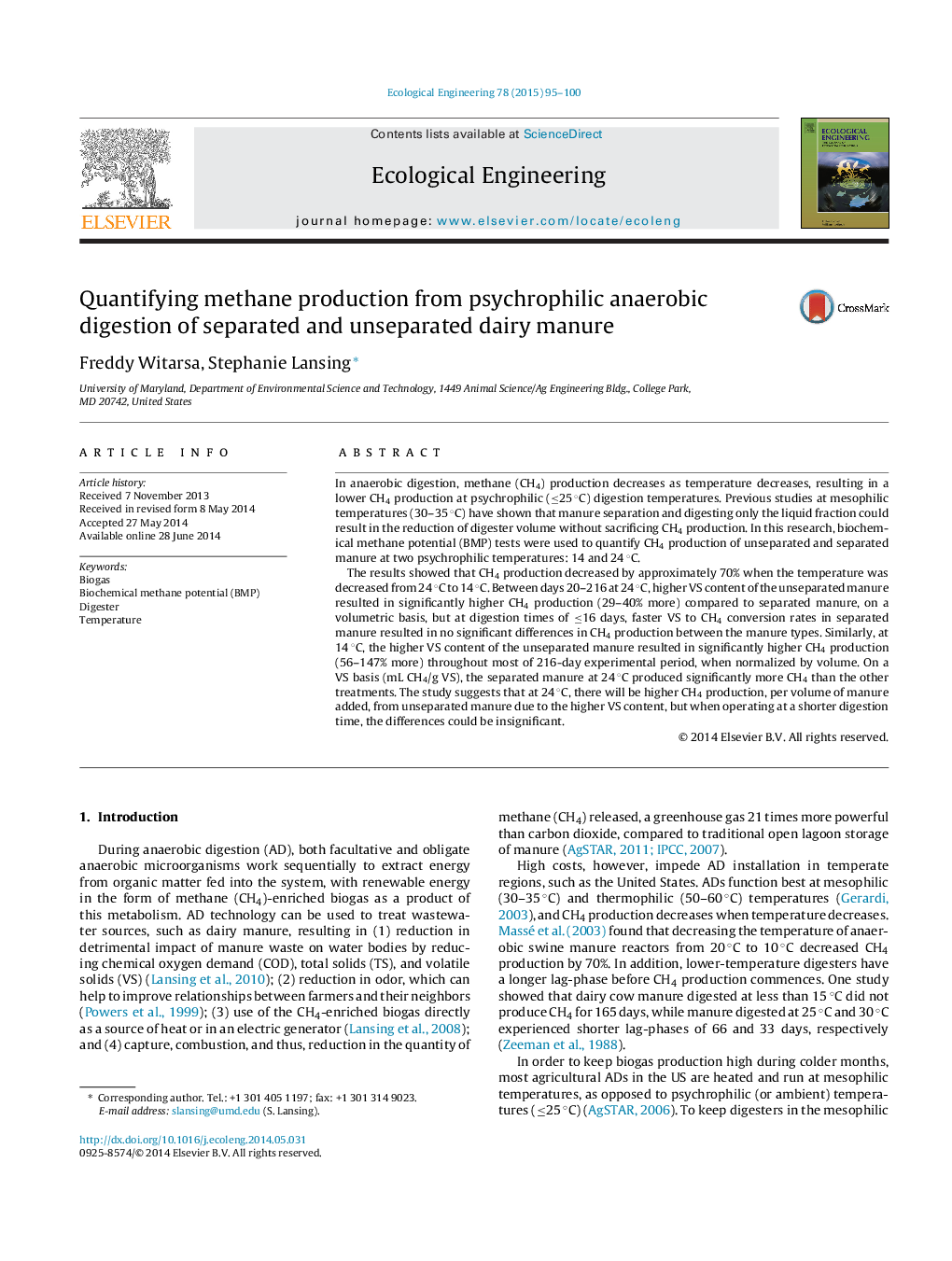| Article ID | Journal | Published Year | Pages | File Type |
|---|---|---|---|---|
| 4389235 | Ecological Engineering | 2015 | 6 Pages |
•BMPs were conducted on separated and unseparated dairy manure at 24 and 14 °C.•Methane production at 14 °C was 70% lower than 24 °C.•No significant differences in CH4 between manure types at 24 °C and 16 days digestion.•On a VS basis, separated manure at 24 °C produced significantly more CH4.•Higher VS in unseparated manure resulted in significantly more CH4 at ≥20 days.
In anaerobic digestion, methane (CH4) production decreases as temperature decreases, resulting in a lower CH4 production at psychrophilic (≤25 °C) digestion temperatures. Previous studies at mesophilic temperatures (30–35 °C) have shown that manure separation and digesting only the liquid fraction could result in the reduction of digester volume without sacrificing CH4 production. In this research, biochemical methane potential (BMP) tests were used to quantify CH4 production of unseparated and separated manure at two psychrophilic temperatures: 14 and 24 °C.The results showed that CH4 production decreased by approximately 70% when the temperature was decreased from 24 °C to 14 °C. Between days 20–216 at 24 °C, higher VS content of the unseparated manure resulted in significantly higher CH4 production (29–40% more) compared to separated manure, on a volumetric basis, but at digestion times of ≤16 days, faster VS to CH4 conversion rates in separated manure resulted in no significant differences in CH4 production between the manure types. Similarly, at 14 °C, the higher VS content of the unseparated manure resulted in significantly higher CH4 production (56–147% more) throughout most of 216-day experimental period, when normalized by volume. On a VS basis (mL CH4/g VS), the separated manure at 24 °C produced significantly more CH4 than the other treatments. The study suggests that at 24 °C, there will be higher CH4 production, per volume of manure added, from unseparated manure due to the higher VS content, but when operating at a shorter digestion time, the differences could be insignificant.
